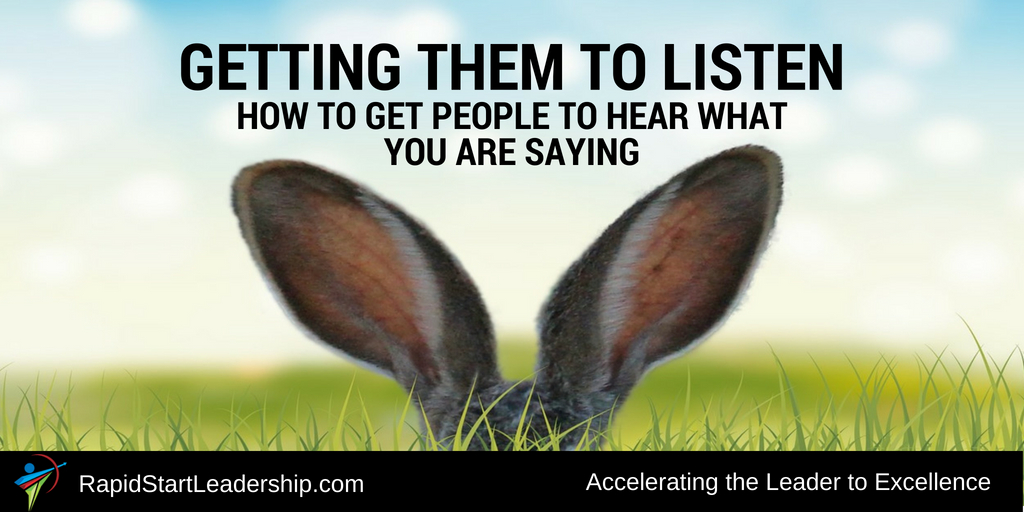How To Get People To Listen To You

In an era saturated with information and fragmented attention spans, the ability to command attention and be heard is more crucial than ever. Whether in a boardroom, a classroom, or a casual conversation, the power to effectively communicate your message can determine your success and influence. But how do you cut through the noise and ensure your voice resonates?
This article delves into the science and art of effective communication, exploring strategies grounded in research and practical application. We'll examine techniques ranging from verbal cues to non-verbal signals, and unpack the psychology behind why some voices captivate while others are ignored. Learning how to be heard is a skill, and like any skill, it can be honed and perfected with knowledge and practice.
Understanding the Foundation: Credibility and Connection
Before even opening your mouth, your perceived credibility significantly impacts whether people are receptive to your message. According to research from Yale University, communicators who are perceived as trustworthy and knowledgeable are far more likely to influence their audience. This credibility is built over time through consistent behavior, expertise, and demonstrating integrity.
Beyond credibility, establishing a genuine connection with your audience is equally vital. Empathy, active listening, and demonstrating a genuine interest in the perspectives of others can create a bridge that fosters understanding and encourages receptiveness. As Stephen Covey famously stated, "Seek first to understand, then to be understood."
The Power of Verbal and Non-Verbal Communication
The words you choose and how you deliver them are critical components of effective communication. Using clear, concise language that is tailored to your audience's understanding is essential. Avoid jargon or technical terms that might alienate or confuse listeners.
Non-verbal cues, such as eye contact, posture, and tone of voice, play a crucial role in conveying your message. Studies have shown that non-verbal communication accounts for a significant portion of how your message is received, often outweighing the impact of the actual words you speak. Maintain direct eye contact, adopt an open and confident posture, and modulate your tone of voice to convey enthusiasm and sincerity.
Structuring Your Message for Impact
The way you structure your message can dramatically affect its impact and memorability. Start with a compelling introduction that grabs your audience's attention and clearly outlines the key points you will be covering. This sets the stage and helps listeners understand the context of your message.
Follow with a well-organized body that presents your arguments in a logical and persuasive manner. Use storytelling, examples, and data to support your claims and make your message more engaging. Conclude with a strong call to action or a summary of your key takeaways, leaving a lasting impression on your audience.
Active Listening: The Key to Reciprocal Engagement
Being a good communicator is not just about speaking effectively, it's also about actively listening to others. Active listening involves paying close attention to what the speaker is saying, both verbally and non-verbally, and demonstrating that you are engaged and understanding.
Techniques like paraphrasing, asking clarifying questions, and providing verbal and non-verbal cues (e.g., nodding, smiling) can show the speaker that you are genuinely interested in their perspective. This fosters a sense of mutual respect and encourages reciprocal listening when it's your turn to speak.
Overcoming Barriers and Navigating Difficult Conversations
Even with the best communication skills, you will inevitably encounter barriers and difficult conversations. When faced with resistance or disagreement, it's important to remain calm, respectful, and open to different perspectives. Avoid defensiveness or personal attacks, and focus on finding common ground and solutions.
Addressing emotional concerns and acknowledging the other person's feelings can help de-escalate tension and create a more constructive dialogue. Be willing to compromise and find mutually acceptable solutions that address the needs of all parties involved.
"The most important thing in communication is hearing what isn't said." - Peter Drucker
The Future of Communication: Adaptability and Empathy
In an increasingly interconnected and diverse world, the ability to adapt your communication style to different audiences and contexts is essential. Consider cultural differences, communication preferences, and individual needs when tailoring your message.
Ultimately, effective communication is rooted in empathy and a genuine desire to connect with others. By practicing these skills and continually seeking feedback, you can enhance your ability to be heard and make a positive impact in your personal and professional life. The ability to truly connect and communicate effectively will remain a cornerstone of success in the years to come.


















